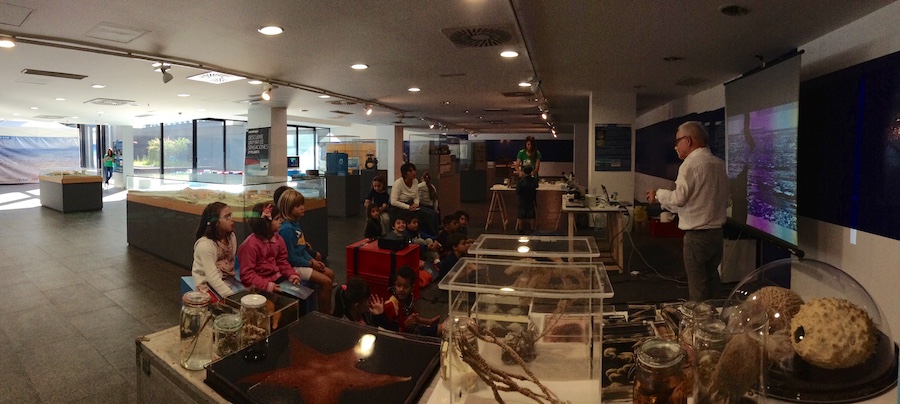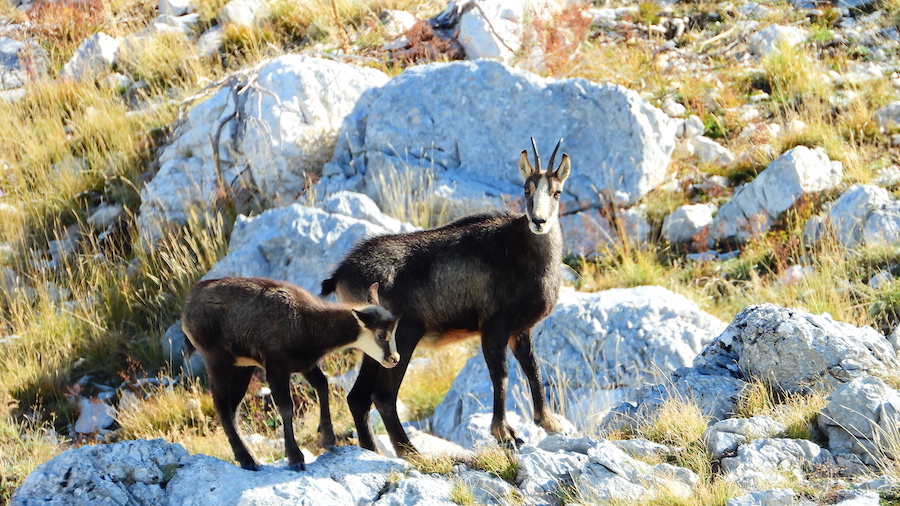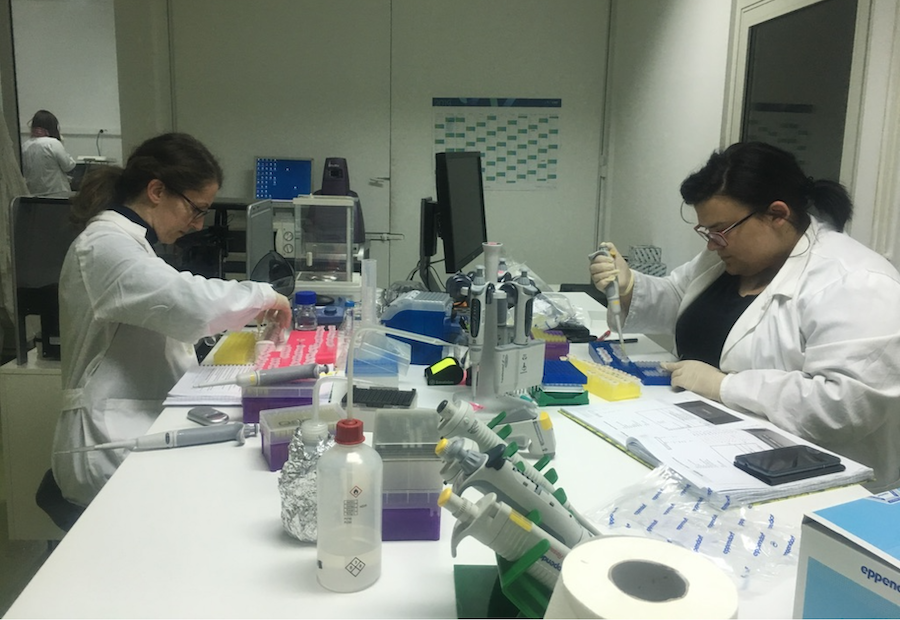
ResBios Partners
- Name of the main contact person for ResBios:
Daniele Mezzana - Team:
Vittorio Colizzi, Carla Montesano, Gian Luca Porinelli - Role in the project:
UNITOV coordinates the participants’ activities and the whole management of the project.
The members of the team will be involved also in supporting the institutional change in RPOs, in the activities of the learning process all over the project, in building an International network for responsible Bioscience, and in the final RRI bioscience model.
UNITOV is also Responsible of the Ethics requirements. - Position in your institution:
Project officer
The Department of Biology of the University of Rome Tor Vergata is the coordinator group for the STARBIOS2 project. bio.uniroma2.it
The University started its activities in 1982 and is now comprised of 7 faculties. UNITOV is the 9th largest Italian university according to the Italian ranking. The QS World University Rankings Top University 2013 ranked UNITOV 7th among Italian Universities and 33rd in the world (QS World University Top 50 2014).
The Department of Biology at UNITOV was established in 1983 and over the past 30 years has developed a multidisciplinary platform that studies life at all levels of biological organization in a variety of organisms, viruses, bacteria, plants, animals and humans.
- Name of the main contact person for ResBios:
Prof. Dimitar Djilianov - Role in the project:
ABI as experienced organization already participated in an EU RRI project – STARBIOS2 has a role of “RRI mentors” to “beginner” partner organisations to achieve sustainable institutional changes related to RRI keys. - Position in your institution:
Professor
Agrobioinstitute is one of the most dynamic research structures in Bulgaria. Since its establishment as the Central Laboratory of Genetic Engineering (1985), later the Institute of Genetic Engineering (1988), and ABI in 2000, the institute upgrades its research capacity and infrastructure.
ABI is well equipped for the development and application of various molecular markers and methods of characterization of genetic resources and biodiversity, as well as for gene cloning, expression, and transgenic research. Research Units work on the following: plan genetic resources, abiotic stress and ecophysiology, biotic stress and phytopathology, functional genetics (cereals, legumes), molecular genetics.
ABI has been selected Centre of Excellence in Plant Biotechnology by the European Commission (1999) and by the Bulgarian Ministry of Education (2009). It is the only institute in Bulgaria which activities are evaluated and guided by an International Consultative Council since 1987.
- Name of the main contact person for ResBios:
Andrea Declich - Role in the project:
Lead of K&I Team - Position in your institution:
Researcher
andrea.declich@knowledge-innovation.org www.knowledge-innovation.org
K&I is a social research organisation established in 2016 to promote, plan and carry out applied research projects in different areas connected with the processes of change that are affecting contemporary societies. K&I members have been working professionally in different research institutions carrying out, among others, around 30 projects in the frame of the EU DG Research FP6, FP7 and H2020, on issues such as the socialisation of scientific research; gender in science; environmental sustainability and energy transition; privacy, security and digitisation.
K&I is conducting different H2020 projects on RRI and RRI keys, such as Fostering Improved Training Tools for Responsible Research and Innovation (FIT4RRI); Territorial Responsible Research and Innovation through the involvement of local R&I Actors (TeRRItoria); Gender Equality Academy (GeAcademy); Certification-Award Systems to Promote gender Equality in Research (CASPER); and PROmoting integrity in the use of RESearch results (PRO-RES).
K&I is the lead partner of the WP2 activities on Co-design of Grounding actions. It is involved also in WP6 – Supporting Institutional change; in WP5 on Citizen engagement and gender equality; on WP7 Mutual learning and evaluation.
- Name of the main contact person for ResBios:
Janire Salazar - Role in the project:
Coordinator of RESBIOS at ICM-CSIC - Position in your institution:
Technician
jsalazar@icm.csic.es www.icm.csic.es

The Institute belongs to the CSIC’s Natural Resources Area and is the largest marine research center in Spain and one of the most important in the Mediterranean region. It is devoted to the study of oceans and seas.
The Institute’s long experience and a team of over 200 specialists in different fields of oceanographic research (physics, chemistry, geology and biology) give the ICM a broad vision of the marine ecosystem, and the ability to seek appropriate solutions for their impacts.
The ICM is constituted by four departments: 1. Marine Biology and Oceanography 2. Marine Geosciences 3. Physical and Technological Oceanography 4.Renewable Marine Resources.
The researchers of these departments take part in national and international projects and in oceanographic surveys in almost all the seas and oceans of the world.
The ICM also has various technical and support services. Some (Chemical Analysis, Coastal Ocean Observatory, Electron Microscopy, Biological and Geological Collections and Flow Cytometry) can be used by other researchers and by the general public (Library). With the CSIC’s publications service, the ICM publishes Scientia Marina, the only scientific journal dedicated to oceanography that is published in Spain.
The ICM is also committed to communication and scientific education through their activities.
- Name of the main contact person for ResBios:
Aglaia Pappa - Role in the project:
Scientific coordinator for DUTH (DUTH is involved in all WPs and will lead Tasks: 2.4, 3.4 and 4.2) - Position in your institution:
Associate Professor
Democritus University of Thrace (DUTH) was founded in 1973 and started operating in 1974. It is spread in 4 cities in Thrace (Komotini, Xanthi, Alexandroupolis and Orestiada), Greece, includes 7 campuses and 18 Departments distributed in 8 Faculties covering a large spectrum of fields from Engineering and Physical Education and Sport Sciences to Health Sciences, Economic and Social Sciences and Humanities. The Department of Molecular Biology and Genetics (MBG) of DUTH was established in 2000 in Alexandroupolis, with the vision to become a leader Institution in education and research. MBG is the only University Department in Greece dedicated to providing a curriculum in Molecular Biology and Genetics, two fast growing scientific disciplines that lie in the heart of innovation in health, food, environment and agriculture. MBG offers post-graduate programs of studies in the disciplines of Translational Research in Biomedicine, Molecular Biology, Genetics, Infectious Diseases and International Medicine and also Didactics of Biosciences. Research at MBG focuses on the study of biological phenomena and mechanisms at the molecular and genetic level. Most research efforts at MBG aim to create exploitable knowledge with impact in three areas: 1) Biomedicine, 2) Biotechnology, and 3) Molecular Agrobiology.
- Name of the main contact person for ResBios:
Christopher Styles - Role in the project:
Communications Officer - Position in your institution:
Project Officer
EUSEA is an international community of public engagement professionals, science festival and science event organizers. The association comprises about 110 members, including universities and scientific institutions, science festival organisations, science centres and museums, municipalities and NGO’s. The network has developed from a knowledge-sharing platform for European science festivals to a collaborative community of public engagement professionals, developing and testing new formats of science communication, building relationships with researchers, policy-makers and stakeholders from scientific institutions, higher education institutions, municipalities and regions.
- Name of the main contact person for ResBios:
Andrea Rezić - Role in the project:
University of Zagreb Faculty of Agriculture will embed RRI practices through the implementation of a set of RRI Grounding Actions to achieve institutional changes related to education, open access and ethics. - Position in your institution:
Expert associate
arezic@agr.hr www.agr.unizg.hr

The University of Zagreb Faculty of Agriculture is completely devoted to education as well as to the development and dissemination of scientific and professional knowledge in the field of agriculture and related sciences. Accordingly, one of the most important tasks of UNIZG-FAZ are:
- to provide contemporary study programmes in accordance with national and international educational, economic and social standards;
- to encourage the active participation of researches, teachers and students in learning and taking responsibility for personal work and progress, as well as to raise awareness about the importance of ethical behavior in the academic community;
- to enable students, agricultural experts and all stakeholders high-quality education with reference to the acquisition of the latest scientific and professional knowledge and skills through quality study programmes and lifelong learning programmes;
- to develop scientific excellence, innovation in research and collaboration with the business sector;
- to improve international cooperation in education and scientific-research area.
- Name of the main contact person for ResBios:
Nataliia Sybirna - Role in the project:
Primarily responsible person - Position in your institution:
Head of Department of Biochemistry
sybirna_natalia@yahoo.com www.lnu.edu.ua bioweb.lnu.edu.ua (Faculty of Biology)
Ivan Franko National University of Lviv is a classical higher educational establishment with powerful scientific schools, old traditions, and modern innovation approaches. Its’ major goal is to provide high educational and scientific standards, satisfy cultural and social needs of persons, society, and state in the process of training of qualified specialists. IFNUL activity is based on the grounds of preserving Ukrainian culture and traditions, developing national consciousness and identity. The structure of IFNUL consists of 19 faculties, Institute of extended and pre-university training, 3 colleges, 7 scientific and research institutes, 6 museums, Observatory, Botanical Gardens, Scientific libraries, as well as a number of scientific objects and objects forming the national heritage of Ukraine, and other scientific divisions. 144 Departments and 2 general University Departments there are at the University. IFNUL also comprises Specialized Academic Councils for thesis defence and the department of post-graduate and doctoral studies hosting 860 postdoctoral scholars and 11 doctoral students at present time. IFNUL took part in realization of several projects funded by Erasmus+. Among of them are “Improving teacher education for applied learning in the field of vocational education” (574124-EPP-1-2016-1-DE-EPPKA2-CBHE-JP), and “Quality assurance system in Ukraine: development on the base of ENQA standards and guidelines” (562013-EPP-1-2015-1-PL-EPPKA2-CBHE-SP), profiles of which matches the tasks in the proposal RESBIOS1.
- Name of the main contact person for ResBios:
Dr. professor, research director, Evanthia Kalpazidou Schmidt - Role in the project:
Arrhus University is responsible for the evaluation of the GAs of ResBios. - Position in your institution:
Professor and research director
Aarhus University (AU) is a leading European research university with education and research activities in all scientific and scholarly disciplines. The University attracts 25% of the Danish research funding and has been awarded several European Research Council advanced and starting grants. The Danish Centre for Studies in Research and Research Policy (CFA) is a research centre at the Department of Political Science, responsible for carrying out both basic research and long-term competence building, together with more practical oriented analyses, evaluations and policy investigations. The centre aims to strengthen the foundations of the research advisory system and the basis for research policy decisions. The centre conducts research on the interplay between science and society, including science policy studies. CFA is also responsible for the training of researchers within its area of activities and is expected to foster and support an informed public debate on research policy issues. CFA is in particular active in the area of RRI, citizens science, structural transformations, gender and implementation of gender action plans in research organizations, evaluation, capacity building, comparative studies and research policy.
- Name of the main contact person for ResBios:
Professor Dr. Doris Elster - Role in the project:
Mentoring institutions and developing new approaches - Position in your institution:
Head of the Department of Biology Education at the Institute of Science Education and Professor of Science Education
University of Bremen (UB) has become one of Germany’s eleven top universities of excellence and ranks among those German universities with highest funding per researcher (German Research Association). UB is renowned for its strengths in sciences and engineering, humanities and social sciences. More than 400 research and business ventures belong to the technology park around the campus. UB is member of the YERUN network (Young European Research Universities Network).
The Faculty of Biology & Chemistry is one of the 12 faculties on campus. It is a research institute where basic and applied research questions in the fields of material sciences, marine sciences, neurosciences, environmental sciences and molecular sciences are investigated. In addition, it hosts a teacher training institute with a science education department.
- Name of the main contact person for ResBios:
Prof. Krzysztof Bielawski - Role in the project:
Project coordinator - Position in your institution:
Professor at the Faculty of Biotechnology and Medicine, Vice-Rector for Development at University of Gdańsk (UG) PhD in medical biology and D.Sc. in biological sciences; full-professor in biological sciences (2011).
The University of Gdansk is the largest academic institution in the Pomorskie Region in Poland.
The Intercollegiate Faculty of Biotechnology of University of Gdansk and Medical University of Gdansk (IFB) is a leading research and teaching institution that has the status of European Centre of Excellence in Molecular Biomedicine since 2002. In 2017, IFB was granted category A+ status by the Ministry of Science and Higher Education as a unit distinguished by the results of research or development works. IFB provides courses in biology, biotechnology and microbiology.
- Name of the main contact person for ResBios:
Dr Elena Buzan - Role in the project:
WP 3 Leader: Grounding actions in Open Access and Ethics - Position in your institution:
Professor and responsible for Societal Engagement
elena.buzan@famnit.upr.si www.upr.si

Univerza na Primorskem (UP), Slovenia’s third largest public university, was established in 2003 as a centre of knowledge implementing European educational strategies. It´s main objective is to carry out high quality study and research programmes, implementing and integrating them with the educational, intellectual and research potential in accordance with EU strategies. It satisfies regional demands and needs for quality higher educational programmes in the bilingual area, where Slovenian and Italian cultures are historically intertwined. It also aims to produce a beneficial co-existence and close collaboration with industry. UP provides an active, interdisciplinary research and study environment based on two fundamental pillars: mathematics, natural sciences and technology, and humanities and social sciences. By incorporating both pillars in research and study activities UP achieves improved interdisciplinary collaboration and improved international co-operation with the world’s leading institutions and researchers.
UP consists of six faculties and one research centre. UP employs 426 researchers and 26 technicians within 8 research groups that focus their studies on Management, Educational Sciences, Mathematics, Computer Sciences, Biodiversity, Mediterranean Agriculture, Sustainable Use of Wood, Health and Disease Prevention, Tourism, Philosophy, Intercultural Studies, History and Heritage, and Linguistics.
In 2019 UP was involved in 52 international research and development projects, including 6 projects in Horizon 2020.
Stay up date with news,
inspiration and events
After pressing “subscribe” you will recieve a confirmation email from our web-host. By following these instructions you will then be added to our mailing list and agree for use to process your data in acordance to our Privacy Policy.
